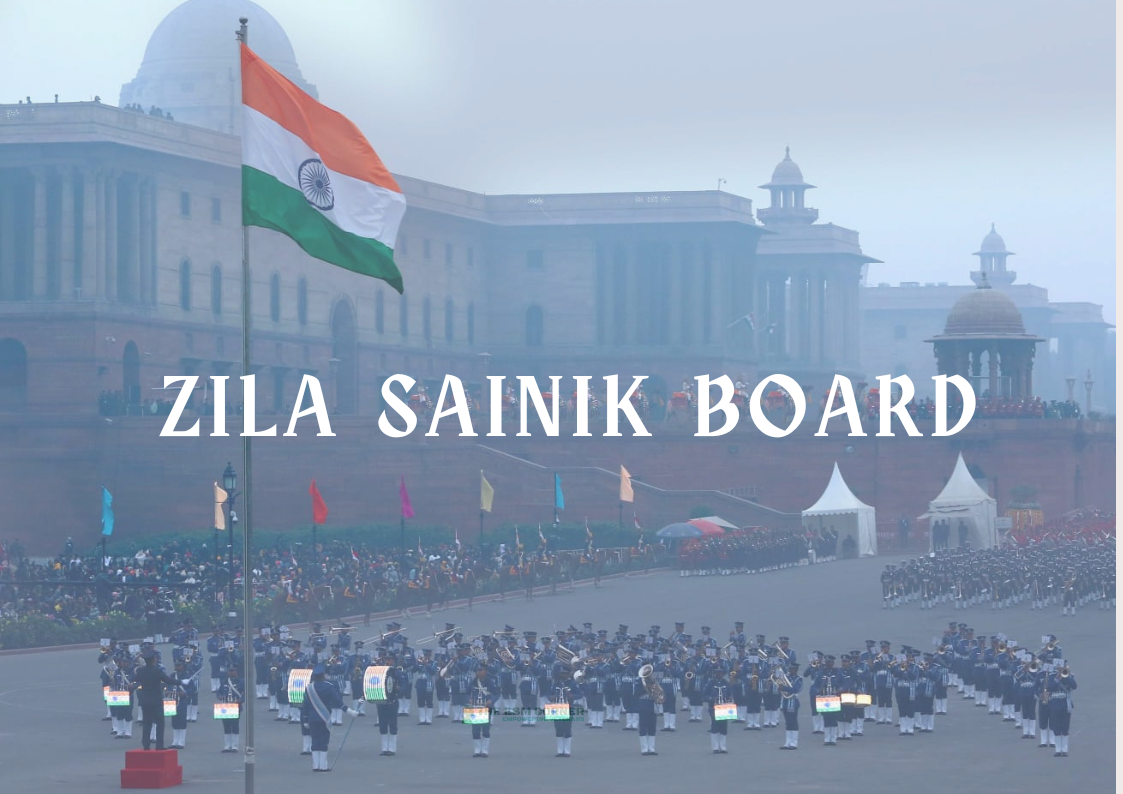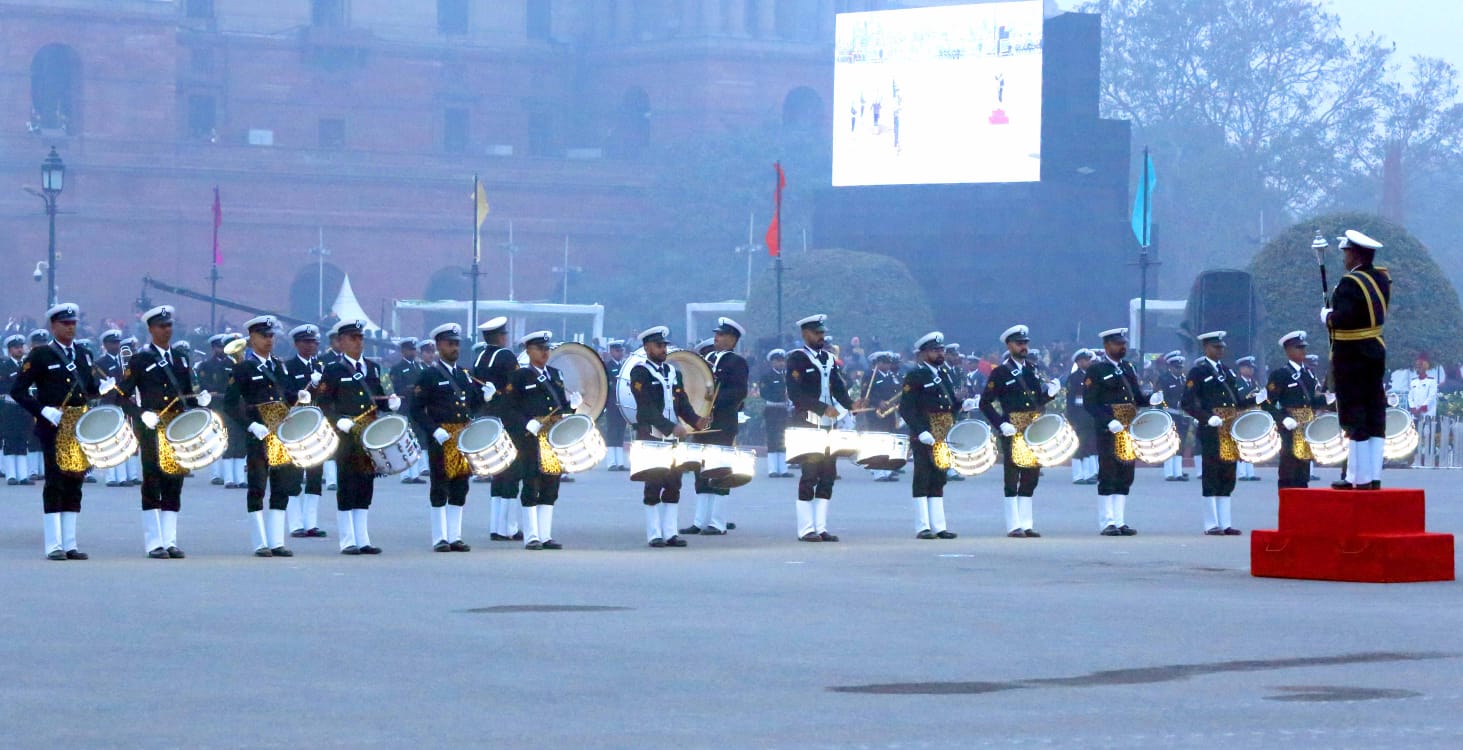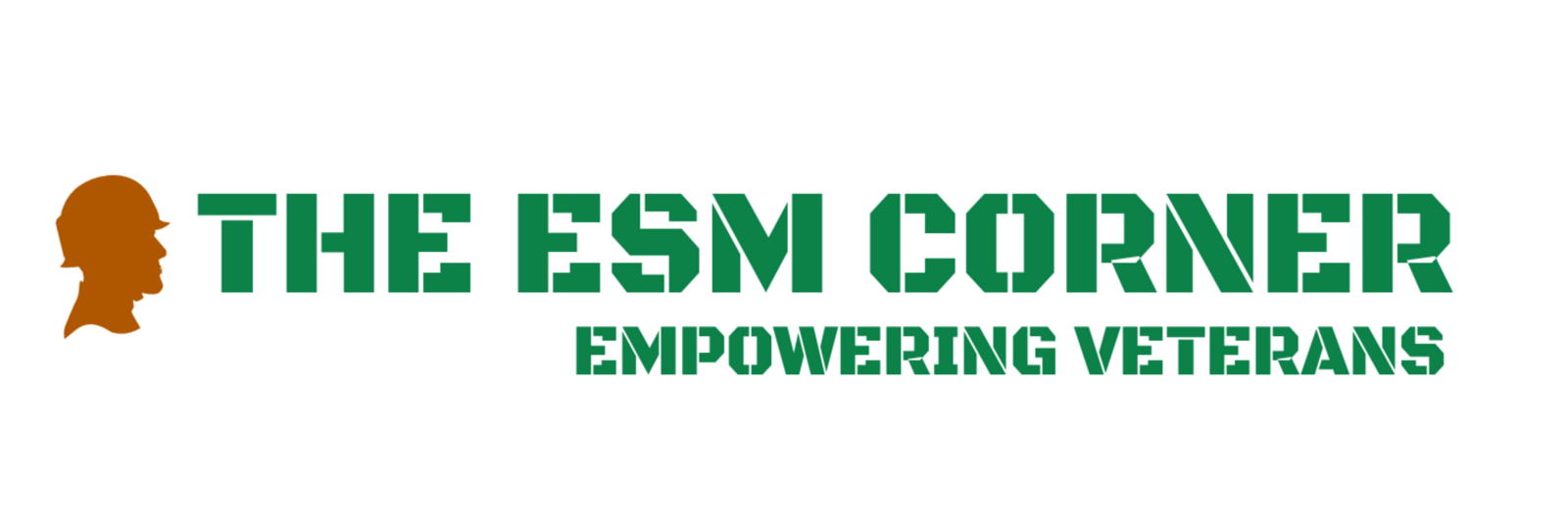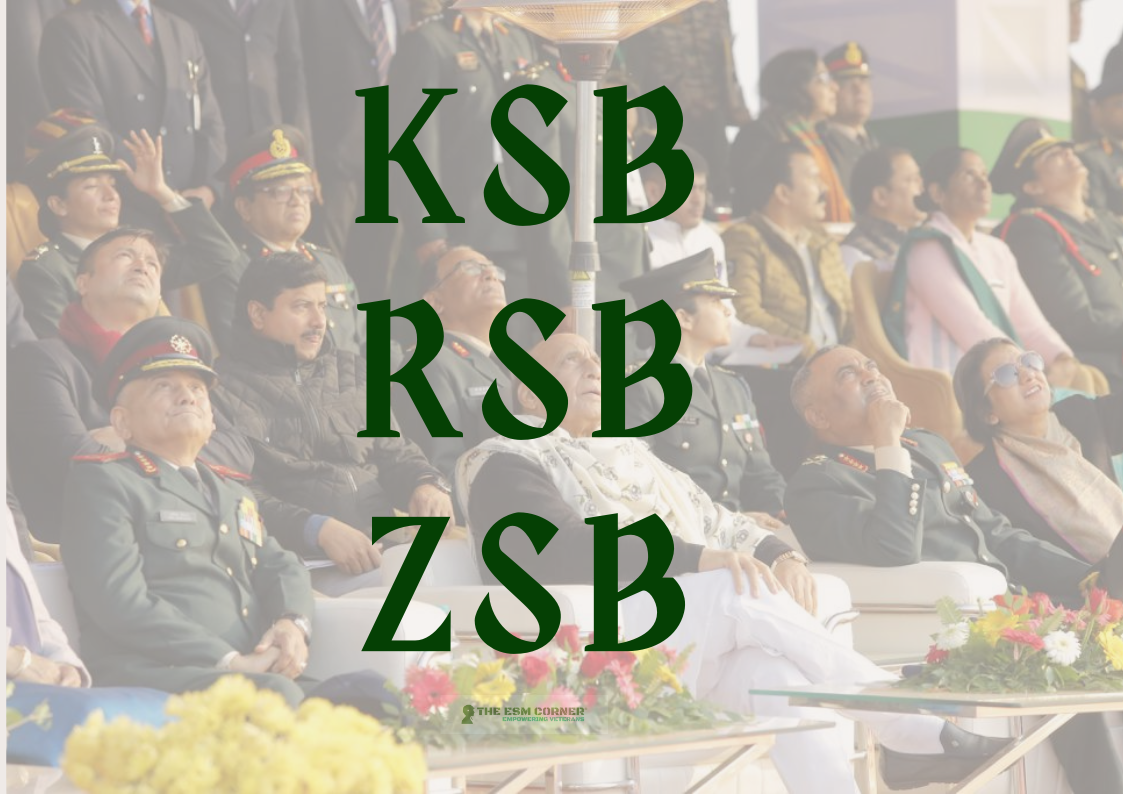
The Ex-Servicemen (ESM) of India are the Nation’s heroes. They deserve respect and recognition for their service. They also face many challenges and difficulties after their service. They need Guidance, Support, And Benefits from the government and other agencies. The government of India has a three-tier welfare system for them and their families. The Kendriya Sainik Board (KSB) is the national-level agency. The Rajya Sainik Boards (RSBs) are the state/UT-level agencies. The Zila Sainik Boards (ZSBs) are the district-level agencies. This article will focus on the Zila Sainik Welfare Offices / ZSB. They are the closest to the ESM and their families. They help them with various welfare schemes and services.
BACKGROUND
The Zila Sainik Welfare Offices / ZSB are the district-level offices that handle the welfare of ESMs and their families in the respective district. The offices are headed by the Zila Sainik Welfare Officers (ZSWOs), who are retired officers of the Army Navy or Air Force. The ZSWOs are appointed by the respective State Governments/UTs and are assisted by a staff of clerks, welfare organizers, drivers, etc. The offices are funded by the State Governments/UTs and also receive grants from the KSB and the RSBs. The offices are under the general control and supervision of the Department of Sainik Welfare / RSB, which is the state-level department handling the resettlement and welfare of ESM and their families.
FUNCTIONS AND SERVICES OF ZSB
The Zila Sainik Welfare Offices / ZSB perform various functions and services for the ESM and their families, such as:
- Sharing information about the Armed Forces with the public and making them respect and appreciate the people who serve or have served in them.
- Looking after the well-being of the families of servicemen and Ex-Servicemen and helping them with any issues they have with the local or Defence authorities. They have staff who visit the homes of these families, listen to their problems, needs and goals, give them advice, solve their issues, and tell them about the benefits and opportunities they can get.
- Checking the applications of people who need financial help from various funds and deciding who should get it.
- Giving money or other help to Ex-Servicemen and their dependents from their funds and suggesting cases for more help from KSB, which is a higher authority.
- Helping Ex-Servicemen and their dependents with financial matters like pension and other payments they should get when they retire or leave the service. They also help them get grants and other help from the Central or State Governments or other groups like the Indian Red Cross Society.
- Helping Ex-Servicemen and their dependents with land and other disputes they may have.
- Helping the families of servicemen who live separately when they are away on duty.
- Supporting and improving the welfare facilities in the district, such as places for Ex-Servicemen to stay, homes for old pensioners, training courses and hostels for children of servicemen and Ex-Servicemen. They do this under the guidance of the State Rajya Sainik Boards, which are higher authorities.
- Arranging for medical treatment for Ex-Servicemen and their dependents in Military or Civil hospitals.
- Working with other groups that help Ex-Servicemen and their dependents, such as the Indian Red Cross Society, NGOs and voluntary agencies. They do this to get more sources of help and benefits for them in the districts.
- Keeping a record of war widows, dependents and those who were injured in action and making sure they are taken care of.
- Representing KSB, Ministry of Defence (Government of India) in Court Cases in the area where these authorities are involved.
- Giving information to Ex-Servicemen and family pensioners about the Ex-Servicemen Contributory Health Scheme (ECHS), which is a health insurance scheme for them.
- Making sure that their ZSBs are checked by the Director, RSB every year. The Director, RSB is a higher authority who oversees their work.

The ZSWOs / ZSBs also help Ex-Servicemen to settle into civilian life after they leave the service. They do this by:
- Helping Ex-Servicemen to start and run cooperatives, which are businesses where they work together and share the profits.
- Giving all kinds of help to war widows, dependents and war disabled, as well as those who died or were disabled while in service for reasons related to their service.
- Helping Ex-Servicemen to make plans for self-employment ventures and to get loans under DGR resettlement schemes. DGR is a higher authority that helps Ex-Servicemen to find jobs or start businesses.
- Exploring avenues for providing educational and vocational training facilities for Ex-Servicemen and their dependents to enable them to seek employment or set up self-employment ventures. They do this by finding out the needs and interests of the Ex-Servicemen and their dependents and linking them with suitable courses and institutions.
- Assisting the three Services (Army, Navy and Air Force) whenever they are asked to do so to spread information within the district about the terms and conditions of service in the Armed Forces. They do this by giving publicity for recruitment notices and for the help given by the Armed Forces in times of national disasters. They also publicize the awards of bravery and other honours, and the welfare schemes for service personnel and their families.
The ZSWOs / ZSBs also do other things, such as:
- Organizing Armed Forces Flag Day, which is a day to honour and support the Armed Forces. They do this under the leadership of President ZSB, who is the District Collector. They also collect money and do other things to raise funds for the Armed Forces on this day or other days.
- Organizing rallies or reunions of Ex-Servicemen. They also organize welfare meetings with the President ZSB to solve the problems of Ex-Servicemen and widows, preferably once every month on a fixed day.
- Maintaining close and effective contact for resettlement through the employment of Ex-Servicemen with:
- Local Central / State / private industrial organizations. They do this by finding out the job opportunities and requirements of these organizations and matching them with the skills and qualifications of the Ex-Servicemen.
- Local employment exchange, especially in States where it has the power to co-sponsor the re-employment of Ex-Servicemen. They do this by registering the Ex-Servicemen with the employment exchange and helping them find suitable jobs.
- Local revenue authorities in connection with schemes for resettlement on land of ESM. They do this by helping the Ex-Servicemen to apply for land allotment and to deal with any issues related to land ownership and use.
- District Industries / Block Development Offices and assisting those Ex-Servicemen who want to set up small-scale industries. They do this by helping them to prepare project reports, to get loans and subsidies, and to get the necessary licenses and permissions.
These functions and services aim to ensure the welfare, resettlement, and overall support for ESM, their families, and widows at the district level.
CONCLUSION
The Zila Sainik Welfare Offices (ZSB) are district-level agencies supporting Ex-Servicemen (ESM) and their families. They provide a range of services, including information dissemination, welfare monitoring, recruitment assistance, and financial relief. Funded by the state government and grants from the Kendriya Sainik Board (KSB) and Rajya Sainik Boards (RSBs), they operate under the supervision of the Department of Sainik Welfare/RSB and the guidance of the KSB. The ZSBs honor the ESM and their families for their dedicated service to the nation.





